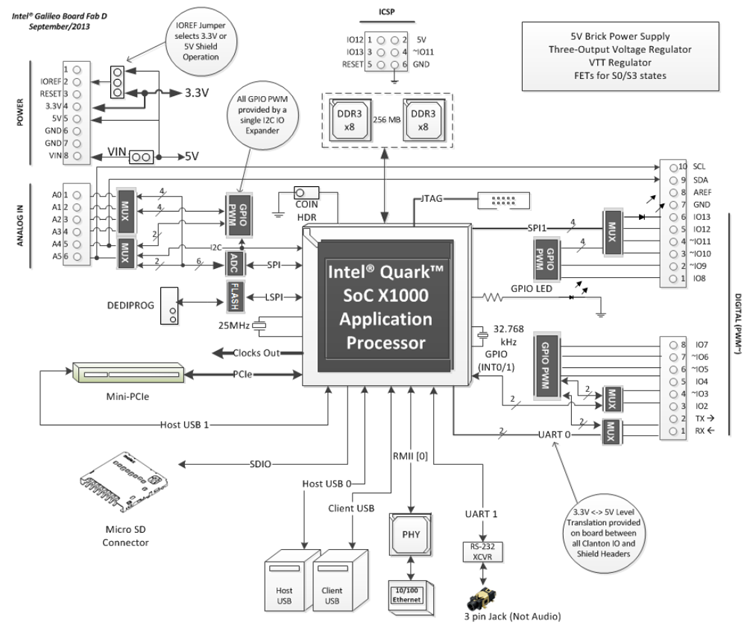Intel® Galileo is an Arduino-compatible development board based on a 32-bit Intel® Pentium® class System on a Chip. Intel Galileo is designed for the Maker community which includes Do-It-Yourself crafters, engineers, artists, and hobbyists. Intel Galileo provides ease of development through support for the x86 and Linux software environments.

- x86 CPU
- Arduino Uno Rev3 Shield pin compatible
- USB host
- Mini PCI-express port
- Micro SD card supported
- Many Arduino Shields are compatible without migrate
- Intel Quark SoC X1000 Application Processor. 400MHz, 32-bit Pentium class
- 16 KBytes on-die L1 cache
- 512 KBytes of on-die embedded SRAM
- Simple to program: Single thread, single core, constant speed
- ACPI compatible CPU sleep states supported
- An integrated Real Time Clock (RTC), with an optional 3V “coin cell” battery for operation between turn on cycles.
- 256MB DDR3 DRAM
- PSoC (programmable system on chip) from Cypress, I2C-controlled I/O expander chip
- 10/100 mbit/s Ethernet connector
- USB 2.0 Host connector
- USB 2.0 Client connector
- 8MB Flash
- 10-pin Standard JTAG header for debugging
- I2C, SPI, UART, ICSP be supported
- There are two buttons:
- Reboot button to reboot the processor
- Reset button to reset the sketch and any attached shields
- Intel Galileo main board x1
- Power plug, has 5 adapters for different standards. x1
- Galileo Getting Started (pdf)
- Galileo Datasheet (pdf)
- Galileo FAQ
- Galileo Supported Shield list (pdf, update 2013/10/10)
- Galileo I/O Mapping (pdf)
- Galileo Schematic (pdf)
- Details of Galileo board














